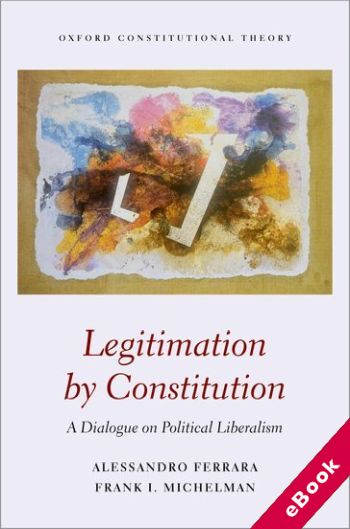
The device(s) you use to access the eBook content must be authorized with an Adobe ID before you download the product otherwise it will fail to register correctly.
For further information see https://www.wildy.com/ebook-formats
Once the order is confirmed an automated e-mail will be sent to you to allow you to download the eBook.
All eBooks are supplied firm sale and cannot be returned. If you believe there is a fault with your eBook then contact us on ebooks@wildy.com and we will help in resolving the issue. This does not affect your statutory rights.
"Legitimation by Constitution" is the phrase, coined by distinguished authors Frank Michelman and Alessandro Ferrara, for a key idea in Rawlsian political liberalism of a reliance on a dualist form of democracy-a subjection of ground-level lawmaking to the constraints of a higher-law constitution that most citizens could find acceptable as a framework for their politics-as a response to the problem of maintaining a liberally just, stable, and oppression-free democratic government in conditions of pluralist visionary conflict.
Legitimation by Constitution recalls, collects, and combines a series of exchanges over the years between Michelman and Ferrara, inspired by Rawls' encapsulation of this conception in his proposed liberal principle of legitimacy. From a shared standpoint of sympathetic identification with the political-liberal statement of the problem, for which legitimation by constitution is proposed as a solution, these exchanges consider the perceived difficulties arguably standing in the way of this proposal's fulfillment on terms consistent with political liberalism's defining ideas about political justification. The authors discuss the mysteries of a democratic constituent power; the tensions between government-by-the-people and government-by-consent; the challenges posed to concretization by judicial authorities of national constitutional law; and the magnification of these tensions and challenges under the lenses of ambition towards transnational legal ordering. These discussions engage with other leading contemporary theorists of liberal-democratic constitutionalism including Bruce Ackerman, Ronald Dworkin, and Jürgen Habermas.